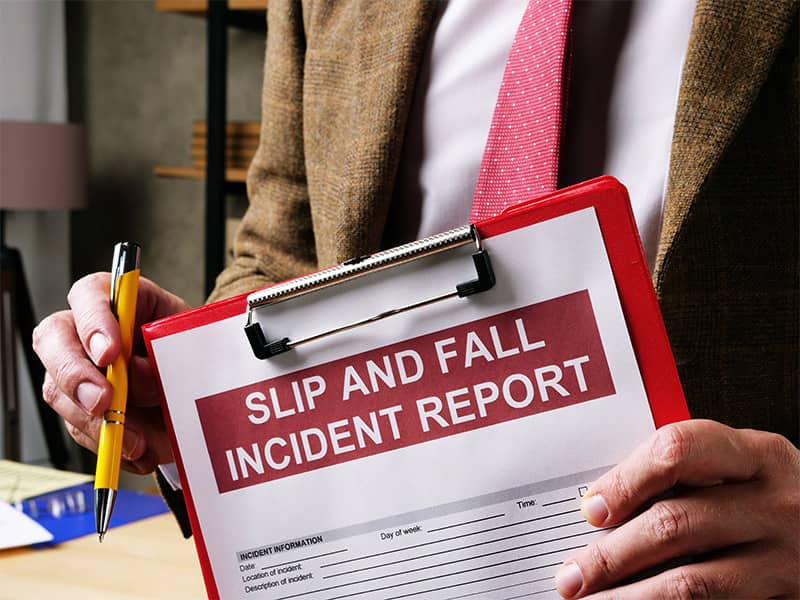
Yes, you can sue for a slip and fall accident on private property. When someone’s careless property maintenance leads to your injury, you have the right to hold them accountable. Property owners have a legal duty to keep their premises safe – whether it’s a house, store, restaurant, or apartment building. Here’s what you need to know to get fair compensation.
A slip and fall accident occurs when someone is injured due to a dangerous condition on someone else’s property. These accidents fall under premises liability law, which holds property owners accountable for maintaining a reasonably safe environment for visitors. Common examples include falling on someone else’s property due to a wet floor, uneven surfaces, or debris.
Slip and fall injuries often result from preventable hazards, such as:
These dangerous conditions can lead to serious injuries, leaving the injured party with medical bills, lost wages, and pain and suffering.
To hold a property owner in California liable for your injuries, you must prove that they were negligent. Negligence occurs when the owner fails to keep the property reasonably safe for visitors. Examples include not repairing known hazards, failing to inspect the property regularly, or ignoring safety standards.
Premises liability is a legal concept that applies to accidents caused by unsafe conditions on someone else’s property. Under premises liability laws, a property owner may be held responsible for your injuries if they knew—or should have known—about a hazard and failed to address it. This law applies to private residences, businesses, and even government property.
In California, premises liability requires property owners to exercise a duty of care to keep their property safe. Whether you were injured on residential property or government property, the owner may be liable if they failed to address a dangerous condition on the premises. However, specific rules may vary depending on the type of property.
For example, public agencies must adhere to unique California premises liability laws, and proving negligence may require additional steps. Check California’s Civil Code Section 1714 for more details.
An essential aspect of premises liability is proving that the property owner had enough time to address the hazard. For example, if someone slips on spilled liquid in a grocery store, the injured person must prove that the spill was present long enough for employees to notice and clean it up. Temporary hazards require swift action, and failure to act could leave the owner liable.
California is a comparative negligence state, meaning the fault for your slip and fall accident can be shared. If you’re partially responsible for your injury—for example, by ignoring warning signs—your compensation may be reduced. For instance, if you’re found 30% at fault, you’ll only recover 70% of your damages.
Hiring a premises liability lawyer can make a significant difference in your case. An experienced California personal injury lawyer will:
Also, many law firms offer a free consultation for victims of slip and fall injury claims. This initial meeting allows you to discuss your case, understand your rights, and explore legal options without financial risk.
If you have been injured in a slip-and-fall accident on private property, you have rights. Property owners are bound by law to maintain their properties safely; failing to do so will result in legal consequences. You can use California’s premises liability laws and prove negligence to hold the owner liable for your injuries.
At DP Injury Attorneys, we believe the legal system should never exacerbate your suffering. We want to help you so that you won’t have to deal with insurance companies or legal issues on your own.
Contact us today for a free consultation, and let us help you focus on recovery while we advocate for your rights.